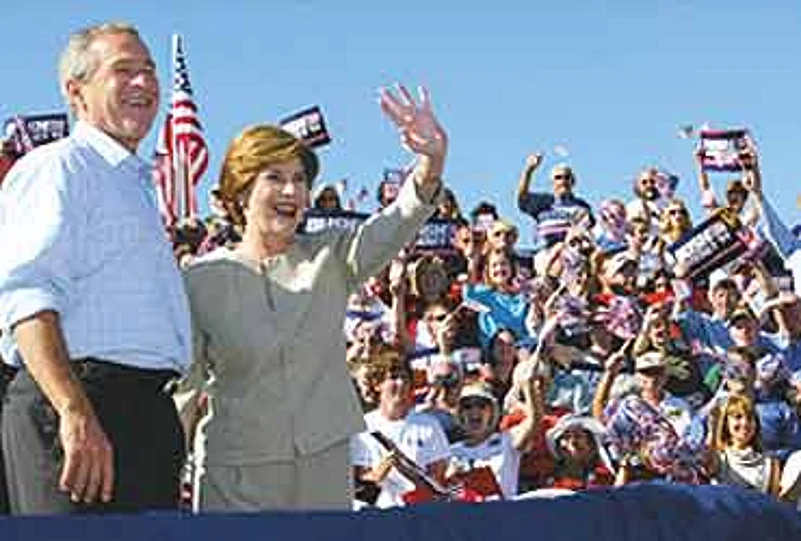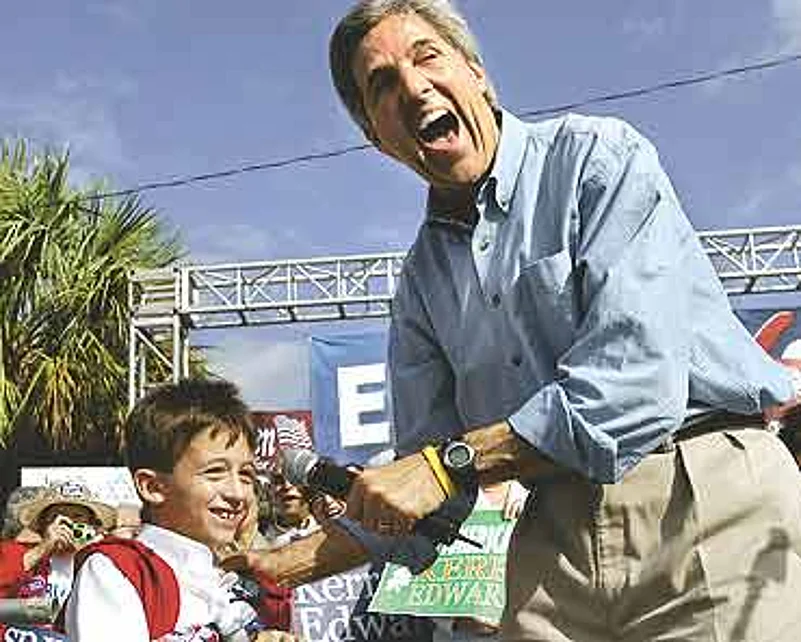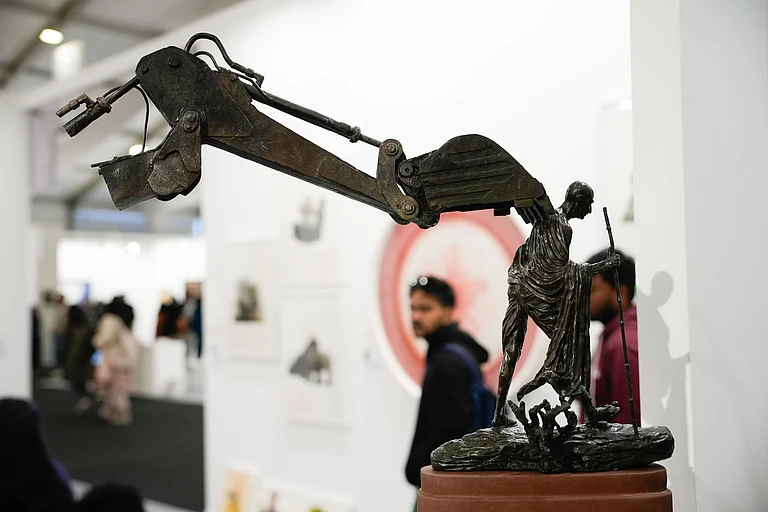
Blacks are most at risk. Consider a statement by John Pappageorge, a Republican politician in Michigan, who reportedly told a party meeting, "If we do not suppress the Detroit vote, we're going to have a tough time in this election." Detroit is 82 per cent black. Thousands of Black voters in Florida are finding—again—that they're the biggest target of computerised voter fraud, their names missing from electoral rolls because of an old list of 'felons' which refuses to get updated. Felons can't vote under Florida law unless they have been granted clemency by the governor.
Greg Palast, America's most intrepid investigative reporter who revealed the fraud against Florida's Black voters in 2000, told Outlook: "Unfortunately, there is no chance this is going to be a fair election. Massive games are being played, again centred in Florida. There is continued removal of Blacks by the thousands from voter lists on grounds they are 'criminals' when in fact they are innocent." Palast says that the 94,000 names on the purge list of "felons" used in 2000 still remain off the rolls despite proof that no more than 5 per cent were convicted felons. The list is overwhelmingly Black—voters who tend to vote for the Democratic Party. A new purge list of 48,000 mostly Black voters was successfully challenged by activist groups.
First Brother Jeb Bush, Florida's governor who put the sunshine state on the map for plumbing the depths of un-democracy, and his team refuse to accept defeat for the Republicans despite courts reversing many of their tricks. Palast says similar disenfranchisement techniques are in evidence in New Mexico and Colorado. "American media doesn't consider news about Black people news. We're using voting machines which have a habit of losing Black votes.If you are a Black voter, you are 900 per cent more likely to have your vote discounted."
New technology was supposed to help but 30 million voters in 19 states will still be using the infamous "punch card ballots" which caused endless controversy in 2000. Electronic voting machines, where they are available, are contentious because of fears of hacking. They lack a paper trail, leaving no written proof for a voter. Since all 50 states follow their own laws, the writ of the party in power can often decide "how" a law is interpreted. Optic machines, the third option in which a voter blackens a circle with pencil, also proved faulty the last time but are being used again, reviving bad memories.

Most US experts anticipate the election would be close, making every vote doubly important. "Our system for administering elections and counting votes remains highly vulnerable to breakdown and challenge in the face of another dead-heat election. A uniform national system would help but it would be very difficult to achieve," says Thomas Mann, an expert on government at the Brookings Institution. To avoid a nightmare on November 2, he says, "we need to pray for a decisive election outcome, so that the legal battles don't commence the day after the election." Additionally, there is an "unfortunate tradition of partisan officials overseeing the enforcement of election law", which politicises election administration more than need be—a revelation that shocked European observers no end. The new Help America Vote Act of 2002 aimed at introducing uniformity has not been implemented across the country.
There is no US equivalent of a non-partisan election commission. The Federal Election Commission monitors only campaign funds to both parties. Bush instituted a new federal agency called the Election Assistance Commission to develop uniform standards, be a clearing house for information, replace punch card ballots and to help with administration. But the new body, struggling mightily with its mandate, says it can't ensure all systems in place for this election.
Besides the mountain of process problems, Americans also have to grapple with philosophical questions stemming from the "electoral college". Americans don't directly vote for the president but for "electors" who appear on the ballot paper for each party. The 538 electors, a figure based on the number of Congressional seats and the two Senate seats in each state, then cast their votes to reflect the popular will. The system is designed to give small states a voice in the process. A winner gets all electoral votes in a state, even the ones he didn't win to reach the magic total of 270. The "winner takes all" is seen as a major drawback because in 2000 Al Gore won 48.3 per cent of the votes compared to Bush's 47.8 per cent yet Bush won 271 electoral votes against Gore's 266.
The winning votes came from Florida.

























